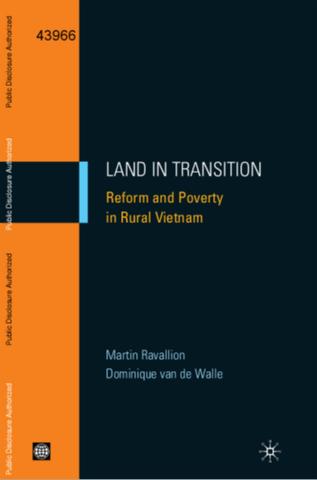Smallholders’ Land Ownership and Access in Sub-Saharan Africa
While scholars agree on the importance
of land rental markets for structural transformation in
rural areas, evidence on the extent and nature of their
operation, including potential obstacles to their improved
functioning, remains limited. This study uses
household-level data from six countries to start filling
this gap and derive substantive as well as methodological
lessons. The paper finds that rental markets transfer land


